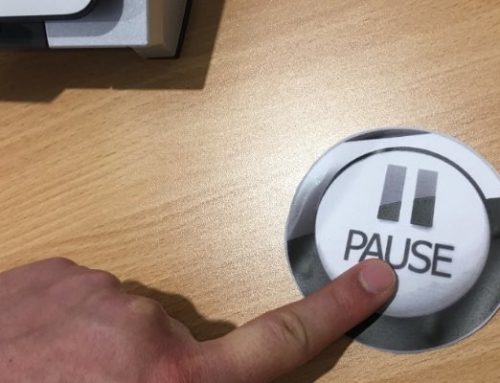And why you should take preparation seriously!
Why are so many presentations boring, self-indulgent and irrelevant? Maybe because the presenter didn’t take the time or effort to prepare adequately?
A presentation isn’t some info you can randomly throw at your audience, hoping it will magically stick. It’s much more than that. It involves good, relevant and cohesive content, it involves great platform skills, such as a confident voice and body language, and finally, it requires a positive and focused mindset to fully engage the audience.
In short: Good public speaking requires preparation. Just like a performance!
I am a classically trained singer, and I still give concerts to this day. Knowing what it takes to perform, it would never, ever occur to me to go on stage unprepared.
As a performer and public speaking coach, I wanted to share my experience and insights into how I think both Public Speaking and Performance are intrinsically related. My hope is that it’ll help shed some light on the greater purpose of public speaking and why preparation is inescapable if you want your presentation to make a lasting impression.
In the table below, I’ve juxtaposed both Performance and Public Speaking so that you can examine the similarities:
| Performance | Public Speaking | |
| Purpose | To take the audience on a journey and to transport them into a beautiful experience of familiar and especially new soundscapes. To bring knowledge and inspire. | To take the audience on a journey from “what is” to “what could be”, from a place of lack to a place of new information and empowerment.
To inform, persuade and inspire. |
| Think of the Audience | Take into account the musical tastes and knowledge of the audience before taking them to new heights. | Know your audience’s level of knowledge and interest in order to engage them. Why should they care? |
| Content and Preparation | The content has to have a flow, a cohesiveness to it, perhaps a central theme to effectively take the audience on that musical journey. The music should be largely beautiful and inspiring. | The content has to have meaning, a logical roadmap and transitions, all relating back to your central idea. Ideas and visual support should relate to your listeners’ level, concerns or interests. |
| Rehearsing | A good performer spend hours and weeks and months going over their pieces until they can go beyond the sheet music and really “own” and feel it. | A good presenter should spend at least a few hours rehearsing their presentation/speech out loud (depending on its length) for the sake of timing, pacing, flow and vocal command. |
| Stress Management | Deep breathing, meditation and positive affirmations help to remain grounded. | Deep breathing, meditation and positive affirmations also help to remain grounded. |
| Performance: Mindset and Connection |
At this point, you just have to forget about your technique, your nerves, your memory, etc. and just surrender to the music. You’re here for the audience. | At this point, you have to forget about who’s in the room, about whether your boss likes you or whether you’re good enough. Just focus on the message and and be present. You’re here for the audience. |
| Pacing | There is no need to rush between phrases. There’s always time to breathe and reset yourself. | There’s no need to rush between ideas and slides. Remember to slow down, pause and breathe. |
| Use of notes | You can choose to memorize your score or to use it – as long as you remember to be present and look up frequently. | You can choose to memorize your talk, or make use of your notes/slides. Just make sure you never read off them and look up frequently. |
| Body language, eye contact | Stay grounded but let your hands talk once in a while to convey more feeling. Look up at your audience. | Stay grounded and also use your hands as you would naturally do in a conversation. This will give you a more relaxed appearance.
Look up at your audience. |
| Voice | Project your voice into the given space and enjoy the magic. | Project your voice into the room/phone/headset and seek to connect with your listeners. |
| The stakes are high! | Your audience has paid money and made time to hear you perform. They expect good content, polish, confidence and something worth their investment. You owe it to them to be prepared! | The audience has paid money or made time to hear you speak. They expect good and relevant content, professionalism, confidence and something worth their investment. You owe it to them to be prepared ! |
As you can see, there are unmistakable similarities between performing and public speaking.
Just as a performance, a presentation takes thought, preparation, dedication. And why does it take so much time? Because there’s a whole world of care that goes into creating content that sticks. The ultimate goal of your talk begins with the preparation itself.
And that has power, because only if you are prepared and you’ve rehearsed can you be present enough to listen to the audience’s needs and reactions, and achieve that goal.
So, what can I say to those who just want to “wing” it? Think again. Tell your boss you need the time to work on your talk, whatever, just make the time. Don’t waste your audience’s energy with incoherent, self-indulgent rambling and a spineless delivery.
Prepare and practise, even in front of your pet squirrel. In the end, you’ll feel more in control of your material, and who knows – you might even enjoy yourself!
Let the audience sense your command, your expertise and your passion. They won’t be able to resist being drawn into your journey – and come out of it enriched.
Just like at a concert.



